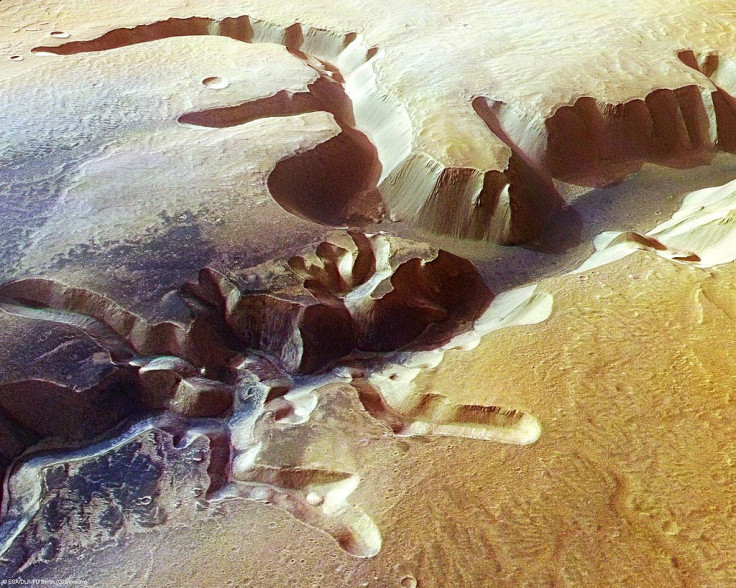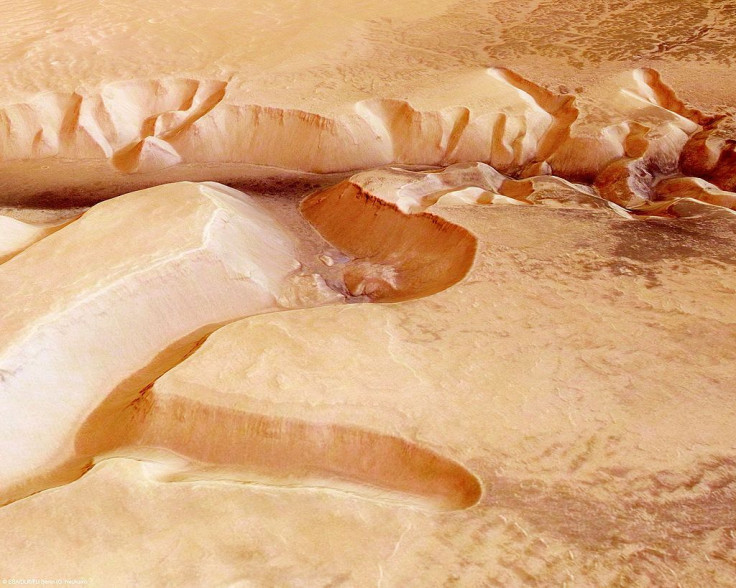Does The Bible Have Proof Of Martian Life Coming To Earth?

A handful of personalities claim that what the Bible calls “fallen angels” are actually aliens from one of the earth’s neighboring planets -- Mars.
Express reported that several conspiracy theorists’ speculations point to the Bible’s “fallen angels” as “ancient astronauts” who once came to earth. Some of them say life on earth was “seeded” by these beings that were mentioned in the apocryphal texts in the Hebrew Bible.
Koshertorah School founder Rabbi Ariel Bar Tzadok said these fallen angels from the “ancient legend of the Books of Enoch” violated divine law by coming to Earth. These angels, he said, “introduced to humanity, ways, means and knowledge – science and technology which we would not understand today.”
Mythologist William Henry, author of the “Lost Secrets of the Watchers,” said many mythologists have contemplated for a long time whether or not these so-called fallen angels came from Mars to Earth.
Mars One candidate Sue Ann Pien, along with “Dark Mission: The Secret History of NASA” author Mike Bara, both noted the remarkable ability of the human body to adapt, emphasizing that if one were born in, or came from, Mars, he’d have a different appearance.
Pien said Mars-born humans would be “taller and skinnier” because of the planet’s gravity. Bara goes on to claim that humans would have “slightly larger eyes” to allow them to see in the planet which is farther from the Sun compared to Earth.
“Technology Of The Gods” author David Childress agrees with Pien and Bara, saying somebody from Mars will have the characteristics of of a fallen angel. “They may be tall, spindly, pale and with large eyes – something that we might expect coming from another planet like Mars,” he said.
Never designed for life
Despite these claims, there just isn’t enough evidence to support the claim that life exists on Mars, other experts said.
Some might say that Mars has water, which indicates that it could support life, but this is very unlikely. In fact, the water in the red planet’s surface alone cannot support even the smallest lifeform for a few reasons.
Dr. Ron Samec, a professional astronomer and physics/astronomy educator with a host of degrees under his belt, said that despite all the current findings about Mars, including the water on its surface, “Mars was never populated with intelligent life, engineers or otherwise.”
Ken Ham, a science teacher with a degree in applied science and six honorary doctorates including a Doctor of Science from Bryan College in Tennessee, said Mars continues to be uninhabitable despite the presence of water in its surface.
This is because the salt minerals found in the water is enough to kill bacteria. In addition, all the salt minerals need to be activated is UV light, which leads to the conclusion that all sorts of bacterial life in Mars would be killed the moment sunlight hits them.

© Copyright IBTimes 2024. All rights reserved.





















